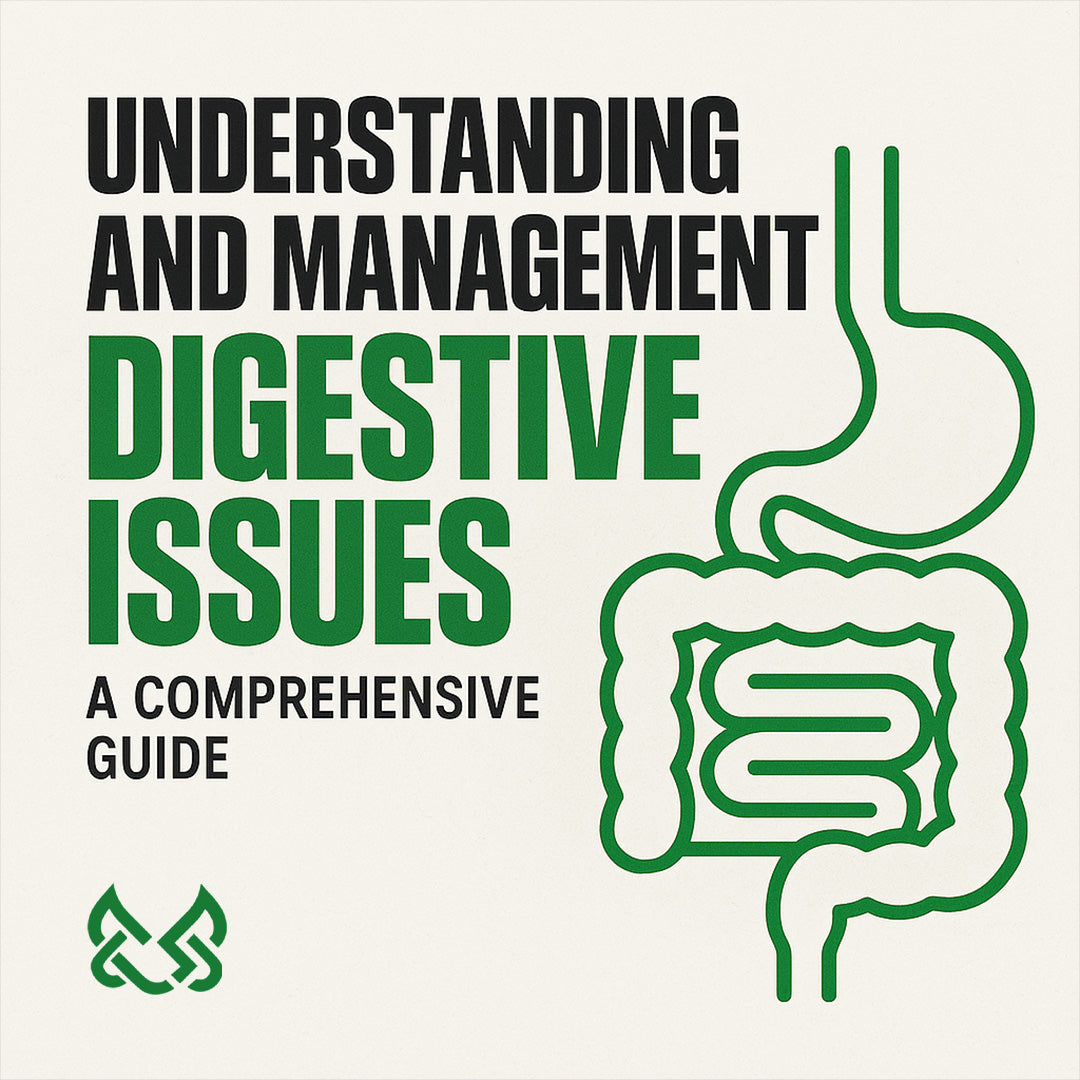Digestive issues are something most of us have experienced at one point or another, whether it’s a mild case of bloating, occasional discomfort, or more chronic concerns like indigestion and irritable bowel syndrome (IBS). Digestive health is crucial, as it plays a significant role in our overall well-being, impacting everything from energy levels to mental clarity. In this blog, we’ll explore the common causes of digestive issues and how certain supplements, such as turmeric, digestive enzymes, and probiotics, can help manage and alleviate these problems.
Common Causes of Digestive Issues
Digestive discomfort can arise from a variety of factors. Some of the most common causes include:
- Poor Diet: Diets high in processed foods, sugars, and unhealthy fats can lead to digestive problems. Lack of fiber, essential for healthy digestion, is also a common issue.
- Stress: Chronic stress affects the digestive system by disrupting gut motility and increasing the production of stomach acid, leading to conditions like acid reflux and IBS. As we know, brain plays a massive role in digestion! Brain & Gut are connected through Vagus nerve but that's a topic for another blog!
- Food Intolerances: Lactose, gluten, and certain FODMAPs (fermentable oligosaccharides, disaccharides, monosaccharides, and polyols) can cause bloating, gas, and other digestive discomforts.
- Lack of Physical Activity: Physical activity helps keep the digestive system moving. A sedentary lifestyle can lead to constipation and sluggish digestion.
- Dehydration: Water is essential for digestion and absorption of nutrients. Insufficient hydration can lead to constipation and other digestive issues.
Supplements to Support Digestive Health
While a healthy diet and lifestyle are the foundation of good digestion, certain supplements can provide additional support and help alleviate digestive issues. Here are some of the most effective:
1. Turmeric
Turmeric, a golden-yellow spice commonly used in curry, is well-known for its anti-inflammatory properties. The active compound in turmeric, curcumin, has been shown to help reduce inflammation in the digestive tract, which can alleviate symptoms of IBS, acid reflux, and other inflammatory digestive conditions.
Turmeric also supports bile production, which is crucial for the digestion of fats. This can help reduce symptoms like bloating and indigestion that often occur after eating fatty meals. Additionally, turmeric has been found to have a protective effect on the stomach lining, reducing the risk of ulcers.
2. Digestive Enzymes
Digestive enzymes are proteins that help break down food into smaller, absorbable components. The body naturally produces these enzymes, but sometimes it doesn’t produce enough, leading to digestive discomfort, particularly after meals.
Supplementing with digestive enzymes can help alleviate symptoms like bloating, gas, and indigestion, especially after eating protein-rich or high-fat foods. There are different types of digestive enzyme supplements available, such as:
- Proteases: Help digest proteins.
- Lipases: Aid in the digestion of fats.
- Amylases: Assist in breaking down carbohydrates.
These supplements are particularly beneficial for individuals with conditions like lactose intolerance or pancreatic insufficiency, where the body lacks specific enzymes necessary for digestion.
3. Probiotics
Probiotics are live bacteria and yeasts that are beneficial for digestive health. They are often referred to as “good” or “friendly” bacteria because they help maintain a healthy balance of microorganisms in the gut.
A healthy gut microbiome is essential for proper digestion, immune function, and even mental health. Probiotics can help manage and prevent a range of digestive issues, including:
- Irritable Bowel Syndrome (IBS): Probiotics have been shown to alleviate symptoms like bloating, gas, and diarrhea in people with IBS.
- Constipation: Certain strains of probiotics can help regulate bowel movements.
- Diarrhea Probiotics are effective in reducing the duration and severity of diarrhea, particularly after antibiotic use.
Probiotic supplements come in various forms, including capsules, powders, and fermented foods like yogurt, kefir, and sauerkraut.
4. Fiber Supplements
While fiber is primarily obtained through diet, some people find it challenging to get enough from food alone. Fiber supplements, such as psyllium husk or inulin, can help regulate bowel movements, relieve constipation, and promote overall digestive health.
There are two types of fiber:
- Soluble Fiber: Dissolves in water and forms a gel-like substance, helping to soften stools and improve bowel movements.
- Insoluble Fiber: Adds bulk to stools and helps food pass more quickly through the digestive system.
Both types are important for maintaining a healthy digestive system.
5. Peppermint Oil
Peppermint oil is another supplement that can support digestive health, particularly for those with IBS. It works by relaxing the muscles in the digestive tract, which can help alleviate symptoms like cramping, bloating, and gas.
Peppermint oil supplements are usually available in enteric-coated capsules to prevent the oil from being released in the stomach, which can cause heartburn. Instead, the coating ensures that the oil is released in the intestines, where it can be most effective.
Lifestyle Changes to Support Digestive Health
In addition to supplements, making certain lifestyle changes can significantly improve digestive health:
- Eat a Balanced Diet: Focus on whole foods, rich in fiber, healthy fats, and lean proteins.
- Stay Hydrated: Drink plenty of water throughout the day to support digestion.
- Manage Stress: Practice stress-reducing techniques like yoga, meditation, or deep breathing exercises.
- Exercise Regularly: Regular physical activity helps maintain healthy digestion.
- Avoid Trigger Foods: Identify and avoid foods that trigger digestive discomfort.
Digestive issues can be frustrating and uncomfortable, but they don’t have to be a constant part of your life. By understanding the common causes of digestive discomfort and incorporating effective supplements like turmeric, digestive enzymes, probiotics, and fiber into your routine, you can significantly improve your digestive health. Coupled with a healthy diet and lifestyle, these supplements can help you maintain a happy, healthy gut, allowing you to enjoy life without the distraction of digestive issues.




